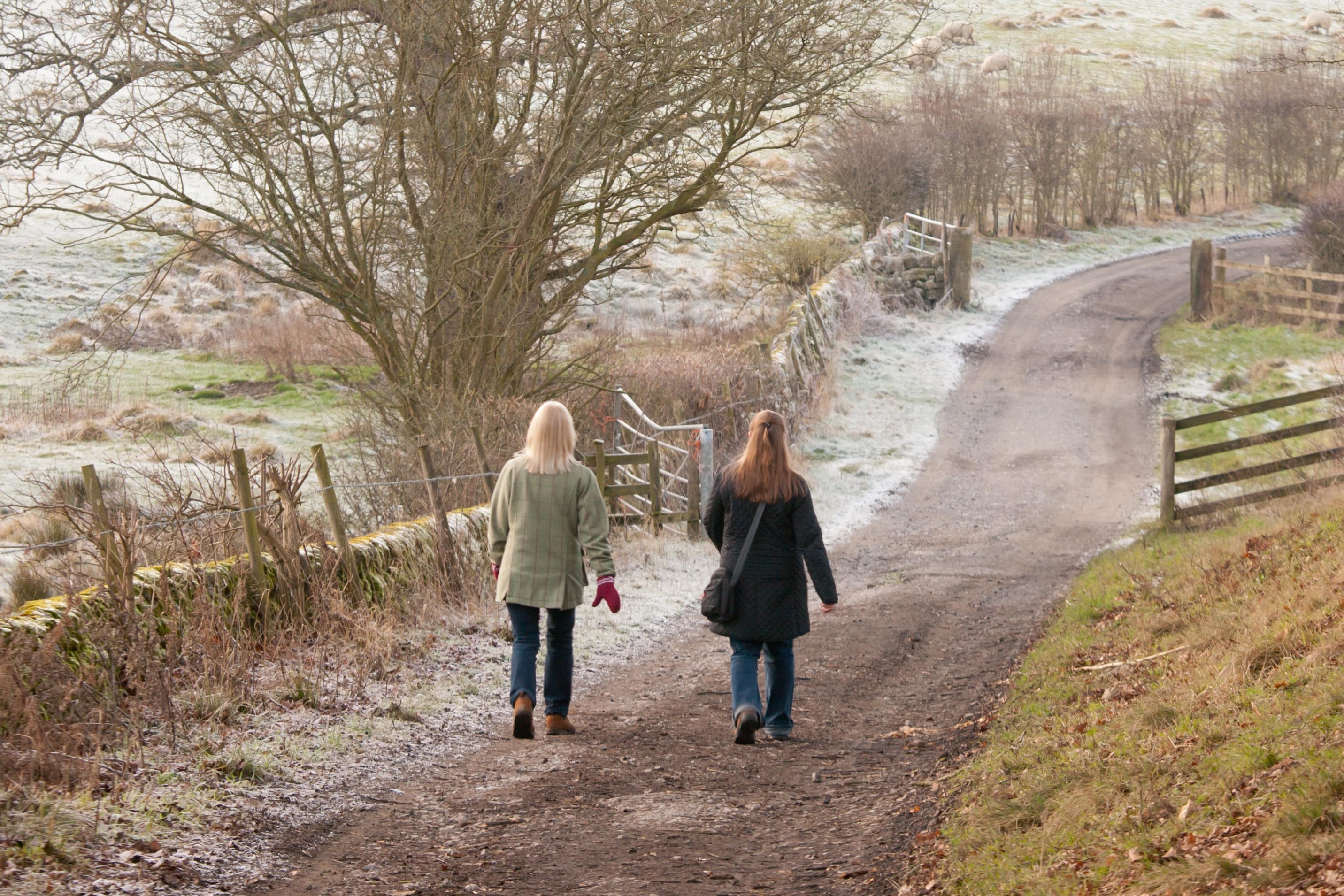Are you one of the many people who decide that the beginning of a new year is a great time to improve your mental health and wellbeing?
You’re not alone. In 2024 more than two-thirds of people in the UK start the new year with new goals; with a third of them focusing on self-improvement.1
Unfortunately, more than a fifth will have given up by February.2
As we head deeper into winter many people struggle with the seemingly endless cold weather and days when it feels like the sun forgets to rise. To help stave off the winter blues our members share their tips on how to improve your mental health and winter wellbeing; as well as help you stick to your goals.
Try daily affirmations
Georgina Sturmer suggests taking time every day to say something positive about yourself out loud.
“If we are struggling with our confidence or self-esteem, this might seem awkward or intimidating or embarrassing. But that’s exactly why it’s such a helpful practice.
"If we can find the drive to voice something positive about ourselves, we can feel more confident and comfortable in our own skin. This is what we need in the depths of winter, when things are feeling stressful or overwhelming.”
Daily affirmations are a great way to notice our inner voice and to take the time to think about things you’re grateful for, according to Stefan Walters. “By focusing on positive, affirming statements, you can start to build a more nurturing and compassionate inner voice, and move away from critical or punitive self-talk which may impact your moods and confidence.”
Connect with your body and nature
Although it’s tempting stay indoors when nights are dark and the skies are grey it’s better for us to get outdoors when we can, says Georgina.
“This time of year is when we need the outside world the most. Stretching our legs and getting outside is good for us in so many ways. When we take a break from our busy day, we are sending ourselves a signal that we deserve to have some time to rest and restore.
“This gentle physical activity boosts our sense of ‘interoception’, the sense of connection with what’s going on inside our body. And getting outside in nature helps us to feel connected and grounded with the world around us.”
Stefan says that research shows getting outdoors into the fresh air and being present in nature is beneficial for mental health.
“Finding an activity such a birdwatching can be a great way of incorporating this into your habits and making it a more regular thing. Birdwatching is a mindful activity which focuses us and connects us with the outdoors and nature. The RSPB holds their annual Birdwatch in January too, so now is a great time to start.”
Stay inside and stretch with yoga
For those who don’t fancy going out in the cold Beth Whiting says yoga is the best way to boost your wellbeing at this time of year.
“There’s a different style of yoga to suit everyone no matter your previous experience, fitness level, age or energy levels. You can also tailor your practice to your mood and the time of day.”
“Yoga helps to build strength, flexibility and stamina in the body and enhances the body mind connection enabling better self-regulation and connection with others. Yoga also works on the autonomic nervous system and endocrine system, it can improve mood, health, sleep and energy levels, it really is the number one all-rounder.”
Beth advises starting with a couple of online classes and recommends Yoga with Adrienne as she’s suitable for all levels of experience and easy to access.
Keep a short daily journal
Georgina says that in counselling she’s seen the power of untangling, understanding and naming our feelings.
“Taking time each day to write down a journal helps us to exercise this muscle. It reminds us of the value of bearing witness to our own feelings. It helps us to notice patterns and triggers for our feelings, and to notice how our feelings influence our actions.”
Writing down our thoughts can help to clear them out of our heads and break patterns of rumination or worry, says Stefan. He suggests starting a new journal for the year ahead as a way of holding a daily conversation with yourself.
“Keeping a daily journal or a worry diary can be a great way to get things down onto paper and clarify them for ourselves, as well as a method of setting intentions and goals.”
Learn breathwork
Beth says most of us aren’t breathing optimally. She suggests a great way to improve your wellbeing (without having to brave the cold dark outdoors) is to focus on improving your breathing. And you don’t have to do big intensive breathing sessions to reap the benefits.
“You may sometimes notice yourself holding your breath or letting out big huffing sighs. Most of us use a very small portion of our lung capacity and learning how to control and maximise our breath can bring great physical and mental benefits.
“You can start by observing your breath as it is and notice whereabouts in your body you are feeling movement from the inhale – your shoulders, chest, ribs or tummy?
“The best way to access this ‘diaphragmatical’ breathing is to lie on your back on the floor with your knees bent and think about breathing into your belly button making it rise with the in-breath and sink with the out.”
Beth recommends looking for free YouTube tutorials that will take you through easy to learn breathing techniques to help regulate your fight or flight response, give you more energy and aid relaxation.
Put your phone away at bedtime and first thing
Our devices are so useful in so many ways. But when life is busy and stressful and overwhelming, the endless scroll of social media and constant notifications can add weight to our mental load, says Georgina.
“However, it might not be realistic to turn off our devices all day long. But if we allow ourselves time at the beginning and the end of the day to decompress without our devices, then we allow our minds the opportunity to wander and daydream and relax before the day gets started, and before we lie down to sleep. This helps to relax your mind and reset your focus.”
Have a plan of action
If you are having a tough time sticking to your goals Stefan says don’t worry about being perfect and just do what you can.
“Introducing one or two new habits will start to have a positive impact and can quickly start to shift you out of a vicious cycle and into a virtuous one, to have a healthier and happier start to 2024."
Catherine Gallacher added: “You need to have a clear vision of what you want to achieve and the belief to achieve it. It also helps to have an emotional attachment to the action we want to take that is locked in and overrides the doubt.”
Catherine also recommends having a plan of action, regularly checking your progress and rewarding all the positive steps – big and small.
“Give yourself praise and be pleased with each of the steps you achieve. This will release our feel-good chemicals (Dopamine) and help with motivation.”
And finally, if you do fall short of your goals don’t give up as it takes time to entrench new habits, says Stefan, so they aren’t just a passing phase.
“Often people start the year with good intentions, but then slide back into old routines and behaviours. It takes time for change to become embedded and have results, so stick with it. It's okay to miss a few days or have a tough week, and then to start again.”
If you’re struggling with your mental health and wellbeing, find a qualified counsellor or psychotherapist who can help you by searching our therapist directory.
References

Seasonal affective disorder: Tips on how to cope this winter
Our member Rakhi Chand talks about strategies for how to deal with SAD and explains how counselling can help

Seasonal affective disorder: How to bring some light to the dark days of winter
Our member Rakhi Chand talks about how counselling and coping strategies can help with seasonal depression

Mental Health Awareness Week 2021
This year’s theme was nature, and our members shared their thoughts on the impact of nature on mental health and wellbeing through a series of blogs
